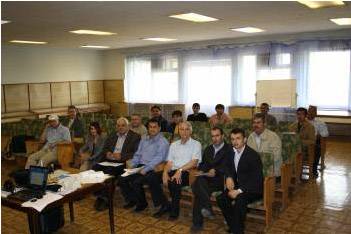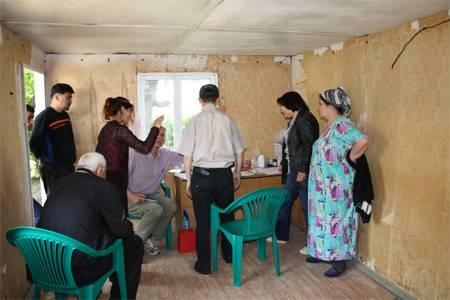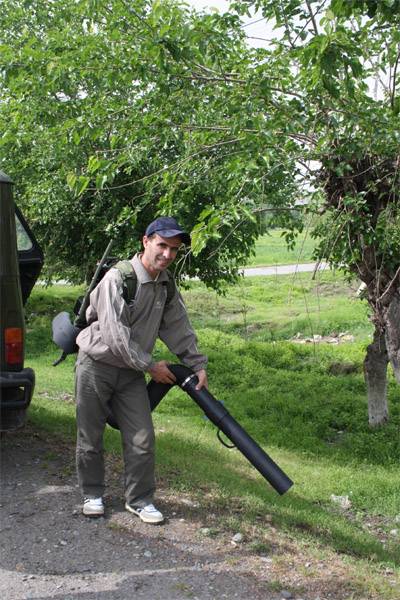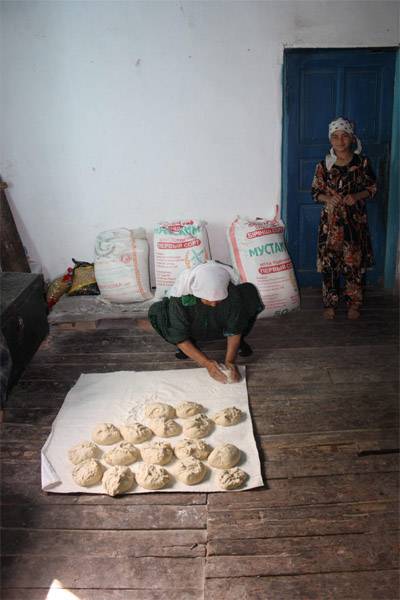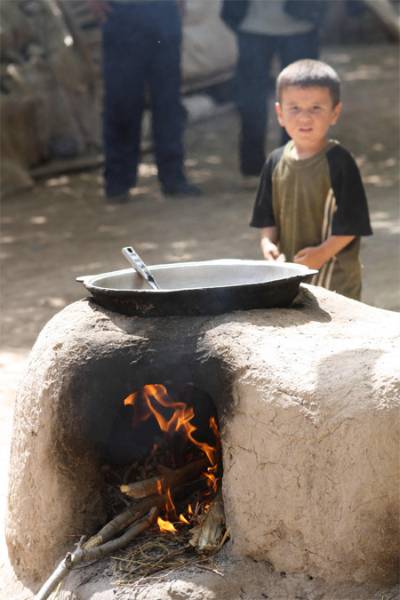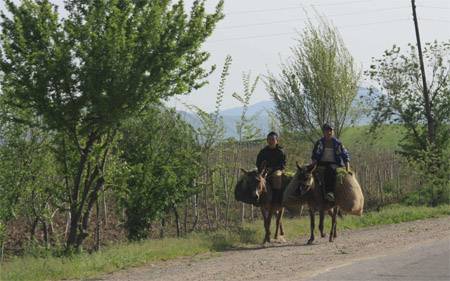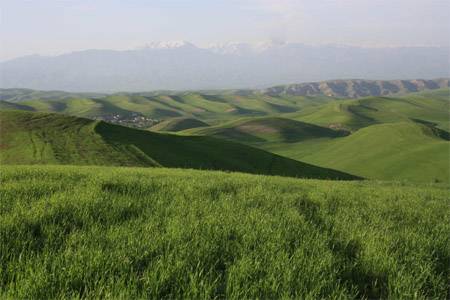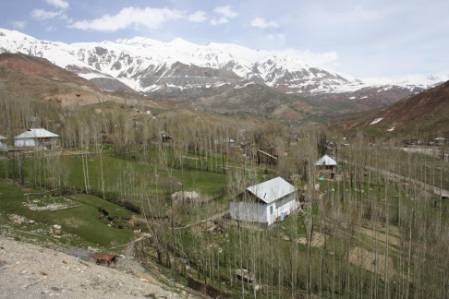It has been a while since I have actually written anything on my blog but I have been away on fieldwork in Tajikistan. I was then one of the many people who were stranded due to the Volcano, but I will say more of that in a bit. Suffice to say that if being held up in a four start hotel overlooking the central plaza in Barcelona was a hardship then I need more of it please. Back to the field trip...
Ralph Harbach, the Mosquito Taxonomist and I are involved in a Mosquito Intervention Project having been contracted by the MOD to work as consultants. The plan was to assist several researchers from the Institute of Zoology and Parasitology, Tajikistan, on a study to identify and monitor the behaviour of the Anopheline mosquitoes, the mosquitoes that transmit malaria. The aim was to collect by various different methods (no cow under a tent this time or rampaging bulls... :) ) throughout the year to figure out what species was biting humans, were they vectors of malaria and when/where etc were people being bitten. All seems very straight forward.....
Well after a very entertaining couple of weeks last year when about 5 of them came over for training we went back to see how and if the work was progressing.
I went via Istanbul and had a couple of lovely days there as holiday before the fieldwork as a nice little break – thoroughly recommend the place!! But then I met Ralph in Ataturk Airport, in Turkey and we spent a couple of hours in the Business Lounge – oh how I could get used to those places!! After an uneventful flight we landed at Dushanbe, the capitol of Tajikistan at 3.30am!! The arrivals area is one large bunker type room with Policemen with the largest brimmed hats that you will ever see. For some reason the luggage took forever to arrive (we believe that the handlers did not want to get wet, the poor things!) and we finally arrived at the Hyatt around 5am! Quite tired by now!
The next day, or technically the same day, we were joined by one of the Project Coordinators, Mike, and we headed off for a lunch time meeting at the Institute. It is a basic place with what has to be one of the most horrendous toilets that I have ever used. Never be fooled into thinking that fieldwork is glamorous!
But they put on an amazing spread for us! One of the things the Tajiks do well is eat. I came back from this fieldwork full – and mostly of bread. We ate, discussed the project, realised that lots of equipment had not made it from Russian across the Uzbek border! They were missing GPS' and Carbon Dioxide traps, the latter being quite critical for collecting insects! We also needed to sort out permits. These sorts of things always take longer than expected! The afternoon involved a long and complicated discussion with many initial misunderstandings due to communication breakdowns! The poor translators had to deal with several people talking at once, scientific jargon and understanding sampling design!
But finally, with the issues resolved, we headed back to the hotel to leave the next day to head of to visit the fieldsites.
We were staying three nights down in Qurghonteppa in the South which is where the NGO SwordeTeppe is based. Paul, Uhmed and Nizora (who came to the UK previously) all work there and acted as translators, drivers, coordinators etc.
Around 12 to 13 people went round the field sites – we must have looked a strange site. There were 3 different localities, three villages within each of these and then two houses per village. When we arrived at the fieldsites, the field investigators had started sampling for the mosquitoes although not how we were expecting them to!! There were little things that needed sorting from the start and there were many confusing conversations! By the end of the three days though I hope that we sorted out a fair amount of them
Here is one of the houses that they used as a field laboratory with Ralph sitting in the middle trying to explain the principles of collecting sheets!
Here is one of the field assistants with a suction sampler. They are needed for the collection of the day resting collection.
Every one of the houses that we looked at for sampling sites was full of the friendliest people. Sadly we could not stay long at each place which is probably just as well as I would have consumed a large quantity of tea! At one of the sites, there was a puppy, which although cute enough was covered in Hippoboscids (parasitic flies) and I spent some time, much to everyone's amusement, trying to get some of the animal!
This woman was making bread for the family. They eat at least this many every day!
Outdoor cooking was common with the massive pots of stew bubbling away.
It was a little later in the year that we went this time and the countryside was carpeted with lush grass. There were boys on donkeys, cars squashed full of old men, goats, lots of goats.
On of the regions was close to the Afghanistan border and we had to go through a military checkpoint. It was all very serious till the Tajik soldiers started flirting! Well that's one for the grand-kids!!
It was difficult as well to determine the incidences of Malaria in the regions as the levels varied depending upon whether you asked the local doctor, the villagers or the field researchers!
After three days though of open roads we headed back to the Capitol to finalise the permits and take a trip up into the mountains. We have got permission to remove all Diptera (mosquitoes and more) which should turn up something exciting. The countryside was a lot lusher than the previous time that I visited but it was still fairly species depauperate as it is still recovering from intensive pesticide usage. The mountains were spectacular though and I would love to have had further time to run about them. We stopped at this Russian styled Thermal Spa – very amusing. I was shown around the ladies only section which included a woman behind a table housing you down, and an inverted shower...I don't really want to think about that!
We left the country again at a silly time of the morning, being driven dazed to the airport at about 2.30 am! And then joined the rest of the world being stuck in a place that was not home! After being informed our flight was cancelled and the next one was not for a week we decided to take evasive action and caught a flight to Barcelona (well you would, wouldn't you) as the probability of getting back from there was greater. I had great plans of the British Army rescuing us but sadly we just ended up after a couple of days flying back!
Back in the UK though it soon became apparent that I would have to go back again soon to take equipment and assist on the training of ELISA (Enzyme-linked immunosorbent assay) which will enable them to detect the presence of malaria in the mosquitoes. My next week or two is filled with conferences, training courses, lecturing and preparation for the next trip! It will a busy couple of months!....



